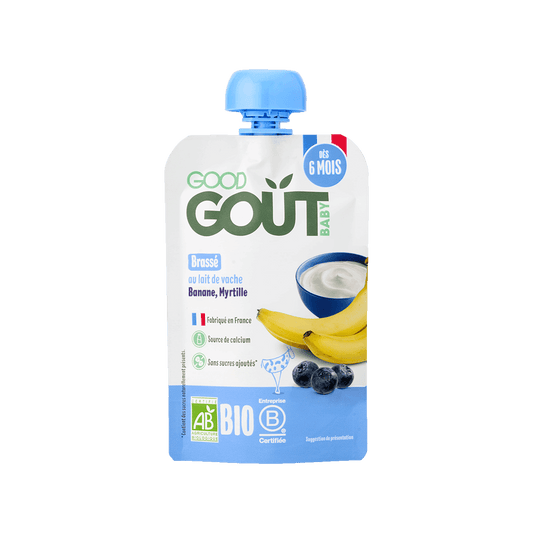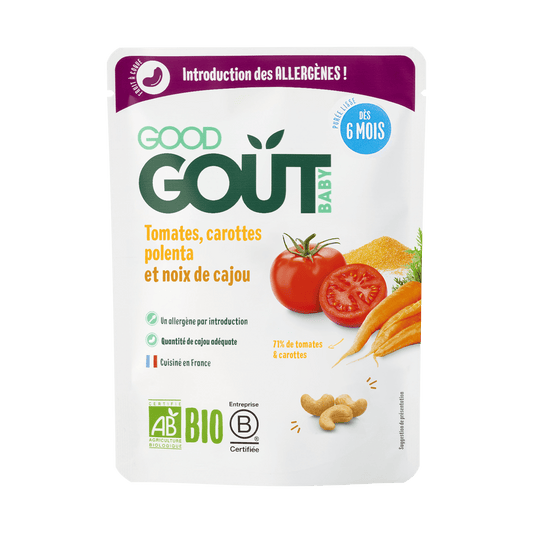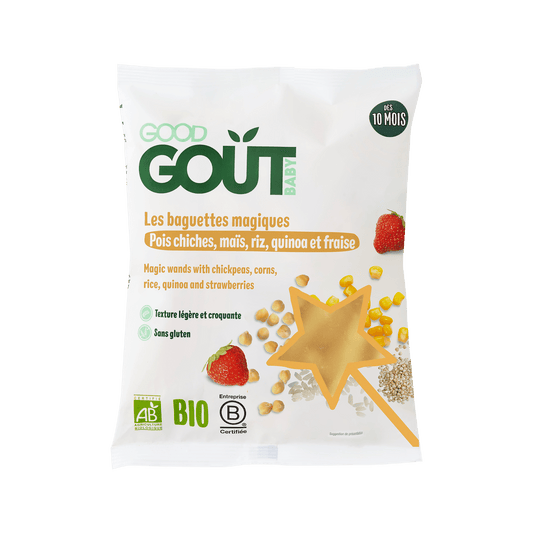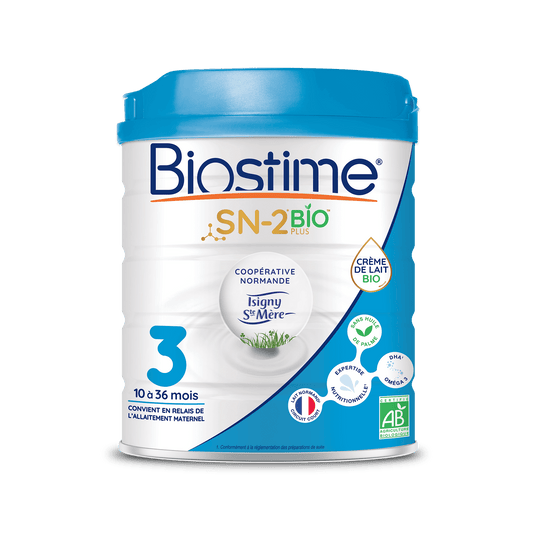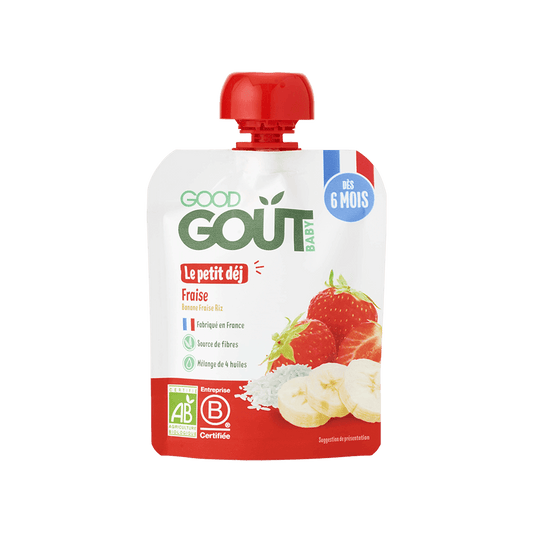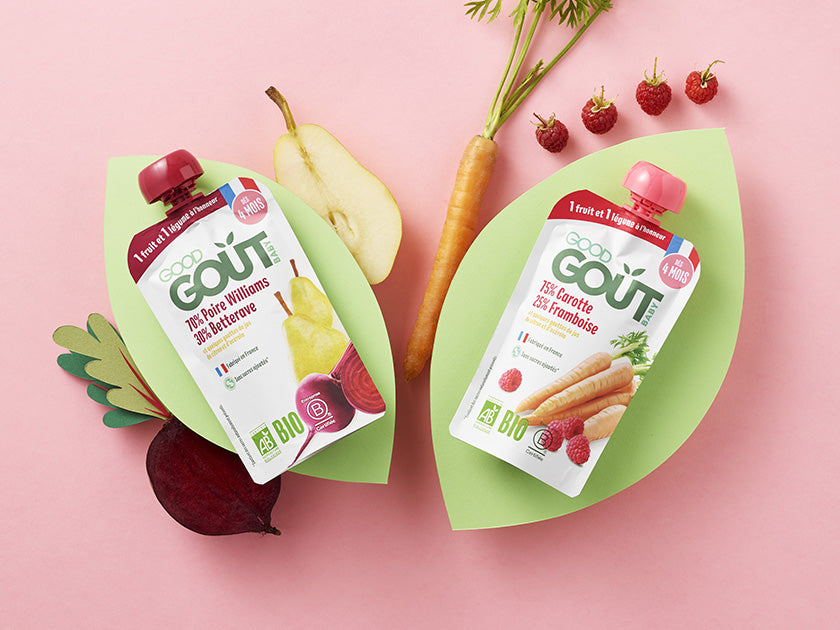Is your baby crying intensely, especially in the evening, and seems inconsolable? What if it's the famous infant colic?
They are quite common, affecting around 20% of babies [1]. Although not serious, they are impressive and disconcerting for young parents who do not know how to soothe their newborn.
At Biostime, we explain everything about infant colic so you can experience it a little more peacefully!
"Important notice: Breast milk is the ideal and natural food for every infant: it is best suited to their specific needs. When using infant formula, when the mother cannot or does not wish to breastfeed, it is important to scrupulously follow the instructions for preparation and use and to follow the advice of the medical profession."
What is infant colic?
Generally speaking, colic is described as recurring and regular crying spells in a baby. According to the Rome IV criteria, which define infant colic as a functional intestinal disorder [1], it is characterized by:
- An appearance and disappearance before the age of 5 months;
- Crying, fussiness, and irritability over recurring and prolonged periods;
- An absence of identified disease.
Infant colic is frightening and frustrating for new parents, who often don't know how to comfort their baby. However, rest assured, these crying spells are not serious.
What causes infant colic?
Infant colic remains an enigma in the world of pediatrics! Despite many years of research, the causes of colic are still poorly understood. The immaturity of the baby's digestive system is sometimes put forward, with the formation of its intestinal microbiota being a real upheaval [2]. Other hypotheses have been considered, including an intolerance to cow's milk proteins [3]. But once again, these are only suppositions!
What are the symptoms of infant colic?
- Your baby starts crying intensely and persistently;
- He folds his legs against his stomach, then stiffens them;
- He writhes, screams and turns red;
- His stomach is hard, bloated and he seems to have a lot of gas;
- He can't calm down. [4]
These symptoms generally occur at the same time of day, most often in the late afternoon and evening. Furthermore, a baby suffering from infant colic is otherwise healthy. However, we still recommend consulting your pediatrician to ensure that it is indeed simple colic.
How to relieve them?
While there is no specific treatment, here is what you can do to try to relieve your baby.
- Sleep patterns, skin-to-skin contact, bath time, and your presence can help calm your baby's crying. [5]
- Limit air intake when breastfeeding, which can cause bloating. To do this, make sure the baby latches onto the nipple properly or that the bottle is tilted properly. [5]
- Give him something to suck on: Sucking is a real comfort during a colic attack. If it has been a short time since his last feeding, try offering him an alternative to the breast, such as a pacifier, to give his digestive system a rest [5].
- If you're bottle-feeding your baby and the pain seems to be due to lactose intolerance, your pediatrician may recommend switching your baby's formula to an anti-colic formula. Low in casein and lactose, anti-colic formula can have a positive impact on some babies. Using probiotic supplements can also help balance your intestinal flora.
- Improve your baby's digestive comfort. For mothers who cannot or do not wish to breastfeed, Biostime offers goat's milk* , which can be an alternative to cow's milk. Why? Because it contains proteins that are not very dense for the stomach and allow for an efficient digestion process [6] and specific carbohydrates, which nourish the intestinal microbiota of babies.[7]
To your testimonies!
The most valuable advice often comes from our own experience. Have you experienced infant colic with your baby? Have you found any tips to relieve it? How did you manage this period? Tell us about your experience at contact@biostime.fr or by sending a private message on Instagram @biostimefr.
*IMPORTANT NOTICE: Biostime SN-2 Bio Chèvre formulas are not suitable for those with allergies to cow's milk proteins.
- Benninga MA, Nurko S, et al. Childhood functional gastrointestinal disorders: neonate/toddler. Gastroenterology. 2016;150(6):1443-55.
- Verduci E, Arrizza C, Riva E, et al. Microbiota and infantile colic: what's new? Int J Probiotics Prebiotics. 2013; 8(1):25–2
- Sung V, Hiscock H, Tang M, et al. Probiotics to improve outcomes of colic in the community: protocol for the Baby Biotics randomized controlled trial. BMC Pediatr. 2012 Aug 29;12:135.
- BIAGIOLI, E. and others. “Pain-relieving agents for infantile colic”, Cochrane Database of systematic Reviews 2016, no 9
- https://www.mpedia.fr/art-decoder-les-pleurs-et-coliques/
- van Leeuwen SS et al. J Agric Food Chem 2020; 68(47): 13469-13485
- Prosser CG et al. Journal of Food Science 2021; 86(2): 257-265

